What Causes A Hangover?
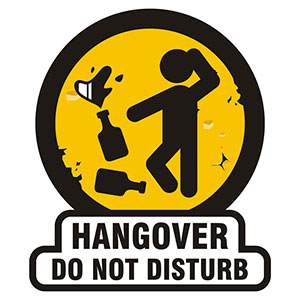
In simple terms, a hangover is caused by drinking too much. The most common hangover symptoms include fatigue (being tired), nausea (feeling sick), headaches, sweating, diarrhoea, excessive thirst, dizziness and sensitivity to bright lights and loud noises. These are caused by a number of factors that are due to the high level of alcohol consumption. This includes:
- Dehydration
- Electrolyte imbalance
- Lack of sleep
- Low blood sugar
- Alcohol withdrawal
How To Cure Your Hangover
Whilst there is no one quick-fix hangover treatment that you can take and it will magically disappear, there are some steps you can follow to ease the symptoms, and overall cure the feeling of a hangover so you can go about your normal routine without having to lounge around the house or stay in bed all day!
The 8 Best Easy Hangover Cures
-
Drink Plenty Of Water
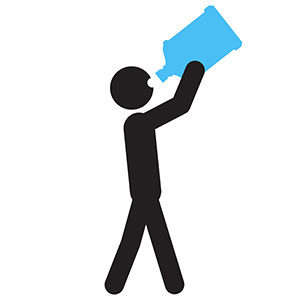
This may seem like the most obvious, but that's because it's a hangover cure that actually works! Alcohol acts as a diuretic, meaning it makes the human body produce more urine. If you vomit due to drinking too much alcohol, it can also lead to a loss of water and precious electrolytes.
Dehydration is one of the main causes for the typical hangover symptoms, so when you drink water after a night out, it helps to rehydrate your body which can limit your thirst as well as other symptoms such as headaches and dizziness.
-
Get Some Sleep
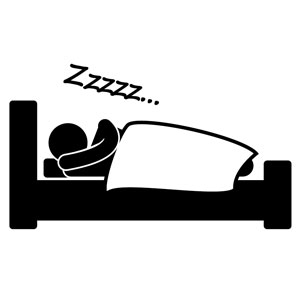
This may seem like a natural response, but for many, drinking is often a night-time activity, meaning it makes a big impact on their sleep. Our body relies on a regular sleeping schedule to keep us healthy and to have time to make repairs as we sleep, so when this is disturbed, it can make an impact.
Drinking alcohol can also lead to disrupted sleep or a lower quality of sleep, so if possible try to get in a few extra hours to get you feeling better. This can also make an impact on good mental health after drinking and help you feel less cranky and annoyed!
-
Eat A Good Breakfast
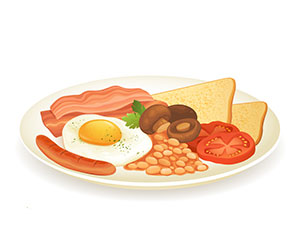
After a night out drinking, our body’s blood sugar levels can really drop. Therefore, to help counteract some of the effects of alcohol, try to eat a good breakfast that's full of protein, carbohydrates and healthy sugars.
This is often why many of us crave a good fry-up the next morning; it not only tastes good when we’re not feeling our best, but also helps with the absorption of alcohol and to get our blood sugar back to normal. Plus, it can help to re-fuel our body and get back some of those lacking vitamins, minerals and essential amino acids you would have lost since you started drinking.
-
Drink Caffeine
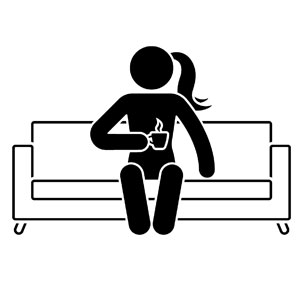
Tea and coffee are some of the most popular morning drinks - and the caffeine content is usually the reason why! Whilst caffeine isn't necessarily a hangover treatment, it is a stimulant and can help you to feel less tired and have a bit more energy.
Plus, a nice hot cup of tea or coffee can be a real mood booster and just the thing you need when you’re feeling the next-day effects of drinking. Be careful not to drink too much caffeine and balance this with plenty of water though, as caffeine can act as a diuretic (will make you need to go to the toilet), so just drinking it alone can make any dehydration worse.
-
Take Over-The-Counter Pain Relief
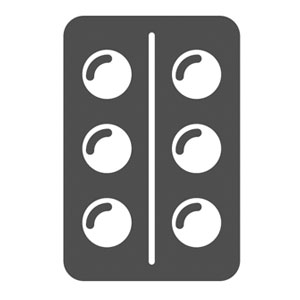
Common over-the-counter pain relief such as an anti-inflammatory like aspirin and ibuprofen can be useful for the symptoms of a hangover, such as headaches or sensitivities to light and sound.
However, you should always be cautious when taking any type of pain relief and make sure you follow the instructions. It's not, however, suggested to take the acetaminophen Tylenol or other brands of paracetamol as it may have a more toxic effect on the liver than normal - when it isn't dealing with excessive alcohol it has more capacity to deal with these effects making it safe to use.
-
Try Antioxidant-Rich Foods
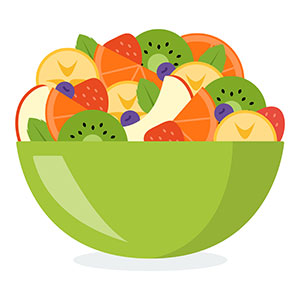
Drinking alcohol is a big cause of free-radical damage in our cells. As a result, it can be beneficial to add antioxidant-rich foods into your diet, especially after drinking, as they can work to neutralise some of that damage.
Examples of food packed full of useful antioxidants include: Blueberries, Acai Berries, Cherries, Grapes, Pomegranate, Nuts, Seeds, Dark Chocolate, Spinach, Ginger and Green Tea. If you can’t easily add these to your diet for whatever reason, you could also consider natural supplements that contain these types of food that are full of high-strength antioxidants.
-
Use A Hangover Supplement
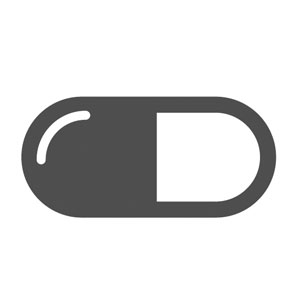
An excellent way to get antioxidants as well as other missing vitamins, minerals and amino acids into your body without too much hassle is with hangover supplements. Let’s face it, when we’re hungover we don’t want to worry about eating specific foods to get the right missing nutrients, we want it all there in one place so that we can go back to bed or get that fry-up.
This is where an after-drink supplement comes in super handy. Hangover pills usually contain B vitamins for tiredness and fatigue, Vitamin C for a normal energy-yielding metabolism, essential amino acids for liver function, antioxidants for protection and botanicals like ginger or chamomile to soothe the stomach.
-
Have A Drink!
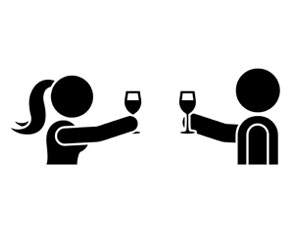
This is a very popular choice for many but is also hotly debated by professionals if it actually works or not scientifically. Also called ‘hair of the dog’, having a cheeky drink the next morning is used by many who say it helps with the hangover.
Many just say because if they don’t stop drinking, they can’t get the hangover, but this isn’t exactly how it works. The science behind it's meant to be that you get the main effects of a hangover when your blood alcohol levels drop down and get to zero. Therefore, if you have another drink in the morning, it rises slightly again alleviating the symptoms. This is very popular, but some still say it's best to stop altogether, so it's up to you to decide!
How To Avoid A Hangover
The best way to deal with a hangover is to not have one in the first place! This may not always happen, however, but here are some quick tips for preventing a hangover (or to at least make it a bit more bearable!):
- Limit your alcohol consumption
- Don’t mix drinks
- Don’t drink on an empty stomach
- Alternate with a non-alcoholic drink (ideally water)
- Avoid congeners (dark coloured drinks)
- Drink plenty of water before you go to bed
- Get to bed at a decent time
Conclusion
Overall, there is no quick-fix solution and different people react to alcohol differently, but if you follow these 8 steps, you can help yourself out a lot with that unwanted hangover! Please remember though to drink in moderation and to ensure you're being safe whilst drinking. Excessive drinking or binge drinking can put you at an increased risk of many health issues, so make sure to limit your alcohol intake if it gets out of control.

